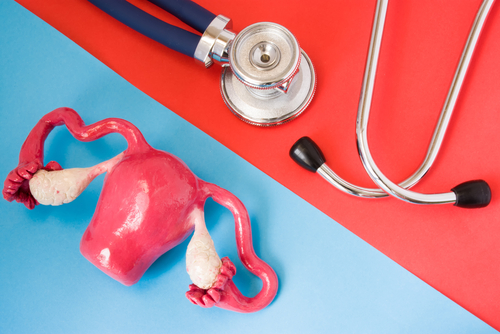Reduced HOXA10 gene expression (protein production) levels in the endometrial tissue may be linked to endometriosis severity and infertility, a study suggests.
Researchers, supported by these findings, believe HOXA10 gene activity may be useful for the early diagnosis and outcome prognosis of women living with endometriosis.
The study, “HOXA-10 gene expression in ectopic and eutopic endometrium tissues: Does it differ between fertile and infertile women with endometriosis?,” was published by the European Journal of Obstetrics & Gynecology and Reproductive Biology
Mounting evidence suggests that endometriosis has a negative effect on women’s fertility. Still, it remains poorly understood why some patients are infertile while others are not.
The HOXA10 gene normally is increased in the endometrium during the window of fertilized egg implantation. Also, its levels are known to increase dramatically during the mid-secretory phase of the menstrual cycle.
Studies in mice have revealed that in the absence of this gene the animals are severely infertile and have anatomically defective reproductive systems.
Collectively, these findings suggest that HOXA10 may be an important gene regulating the outcome of pregnancies.
To explore the potential role of HOXA10 gene in women with endometriosis, researchers evaluated its levels in 11 healthy women and compared them with those found in 22 women diagnosed with endometriosis, of whom half were infertile.
Upon analysis of endometrial tissue samples the team found that HOXA10 gene levels were 1.9-fold and 3.5-fold reduced in fertile and infertile endometriosis patients compared to healthy women. In addition, infertile patients showed 1.78-fold reduced levels compared to fertile patients.
“Our results indicate that the decreased [levels] of this gene may directly be related with the endometriosis-associated implantation failure or may surrogate different, or not yet known, underlying mechanisms that ultimately deteriorate fertility potential of the woman,” researchers wrote.
Further analysis according to endometriosis severity, as determined by the findings obtained during surgery and the revised American Fertility Society (rAFS) scoring, revealed that women with more severe disease had 1.2- to 1.3-fold less HOXA10 expression levels in endometrium tissue and endometriosis lesions.
Although the study findings suggest that severe endometriosis cases “have significantly lower levels of HOXA-10 gene than moderate cases,” these results “do not reveal any causal relationship between the severity of disease and the level of the gene expression,” researchers stated.
Additional studies are still warranted to further investigate changes in HOXA10 gene levels as the disease progress, they added.

